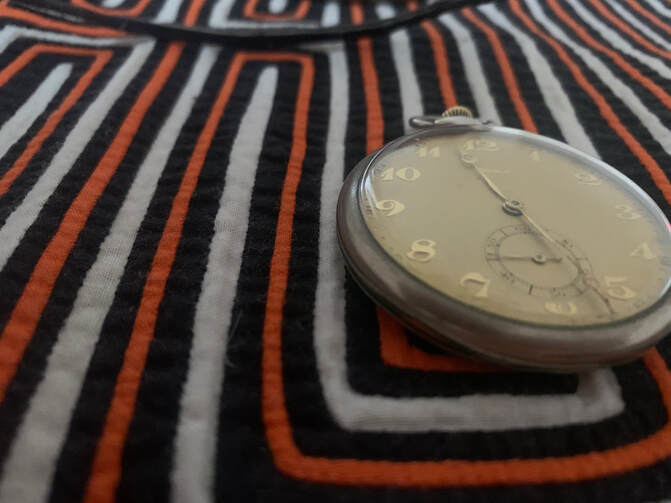Our civilization has achieved amazing things: from curing previously deadly diseases to travelling into space, from connecting people around the globe in an instant to developing carbon capture technology. Unfortunately this greatness tends to blind us to the severity and urgency of the risks we are facing today. We think that our civilization is better and more advanced than previous ones, and that therefore it is somehow resistant to collapse. We think of our own civilisation as permanent, as the ultimate civilisation that has achieved what humans can possibly achieve. We think of our world as the pinnacle of evolution. I bet you that those Ancient Egyptians, Greeks and Romans thought the same.
This makes us too slow to respond when the risks finally dawn on us, and too focused on one-dimensional solutions. Many of us believe that technology and innovation, which have indeed served us so well in overcoming challenges of the past, are the servants that can continue to make sure we stay ahead. We think within civilizational boundaries which we do not question. But ignoring complexity and failing to look at the bigger picture from a systems perspective is dangerous.
No matter how advanced our Modern Global civilisation may be, it certainly is not immune to collapse. Greatness may actually be a risk factor: greatness seems to correlate with complexity, and both real and perceived greatness has led to the sort of hybris that makes civilizations blind to very real risks. Historically, it was rarely just one event or one factor that caused civilization collapse. A combination of factors seems to have been preceding collapse in many cases. Historical analysis suggests that besides external shocks through war, famine and disease (and sometimes simply bad luck) four main factors are linked to civilisation collapse: Climate change; negative environmental impact; inequality; and complexity.[ii] Does this sound familiar? Climate and other forms of environmental change, widening gaps between the rich and the poor and accelerating complexity are the very issues we are struggling with today. They are already keeping scientists, activists, policy makers and some enlightened business leaders who have understood the need for systems change very busy. We have recognised the trigger points, but we have not yet been able to move much into the right direction.
What does distinguish us from earlier civilisations is that our impact on the climate is human-made and much more pronounced than that of our ancestors. A narrow focus on economic growth, the very progress we cite as a means to push our civilization forward and assure it survives and thrives, is putting our lives at risk, and threatens our entire civilisation. The enormous degree of complexity and interdependence in a globalised world, the fact that we depend on a complex network of private and public entities across several regions and countries for food, water, medicine and other essentials, makes our civilisation even more vulnerable than previous ones.
So if greatness - real or perceived - cannot protect us, what can? The tools we have to arm ourselves against collapse are science, systems thinking and global collaboration. We must address complexity head-on. Science, technology and innovation can indeed go a long way in decelerating the pathway towards collapse. However, without a bigger picture perspective and long-term thinking as well as true global collaboration on policy and action across governments, businesses and citizens – and across countries and cultures - technological innovation will not do the trick. Many of the technical solutions are well known and their likely impact can be tested and demonstrated in very comprehensive and user-friendly ways, for example the EN-ROADS climate change solutions simulator developed by management school MIT Sloan together with Climate Interactive, a think-tank. We now “only” need sufficient political will and societal understanding to actually implement the solutions we have known about for decades.
Addressing climate change is a worthy goal and essential for saving our civilisation. However, it is not an end in itself, but rather a means to maximising health and wellbeing for all, and to save the billions of Euros and Dollars resulting from inaction. Not only at some distant point in the future, but right here and now, where seven million people die from air pollution every year and millions more are affected by drought, flooding, hurricanes, extreme heat and other effects of climate change, all of which has enormous societal costs.
Positive framing and harnessing the power of multisolving – of creating and demonstrating triple wins across the environmental, social and economic spheres at the same time – is the way to go. Rather than messages of doom and gloom this will ensure that action to address the climate crisis and improve global justice is palatable to politicians and business leaders alike, besides providing the necessary incentives for citizens to change their attitudes and behavior.
[i] Kemp, L. BBC Future http://www.bbc.com/future/story/20190218-are-we-on-the-road-to-civilization-collapse. “The data is drawn from two studies on the growth and decline of empires (for 3000-600BC and 600BC-600), and an informal, crowd-sourced survey of ancient civilizations (which I have amended).”
[ii] Ibid



 RSS Feed
RSS Feed